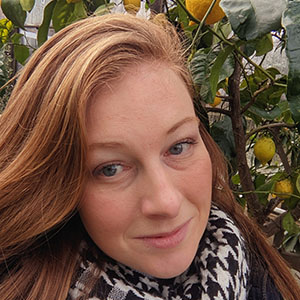
Charlotte Parker
Country: UK
Organization: Southampton City College (Middlesex University London)
Short CV
Charlotte Parker is a British Person-Centred counsellor and psychotherapist and Registered Member of the British Association of Counselling and Psychotherapy. Charlotte entered the profession after a personal bereavement and felt a strong desire to help others in distress. She specialised in working with bereaved clients, and then those struggling with substance misuse. Charlotte graduated with a BA (Hons) degree from Southampton City College (Middlesex University London) in 2023. For her dissertation topic she chose to explore therapist experiences of negative feedback from clients, organisations and supervisors following her own challenges during her student placements. Charlotte has since then continued her research, seeking to cast the net wider and discover more of these experiences, in the hope this may help our profession.
Short presentation
Title: “Some you win, some you lose”
Polyphony is an ongoing, never-ending symphony. It starts with a sound, a thought, a process, and in this case; a voice. Polyphony gives people freedom to express themselves through dialogue. But this might also include having difficult and uncomfortable conversations or listening to those voices which may sometimes go unheard.
Therapists are human beings, who are intrinsically fallible. We may reject or refuse to engage in difficult topics of conversation, especially those which can threaten or underpin our self-concept, or how others might view us. The opposite of a polyphony is a monophony, where a louder voice may seek to dominate or drown out those of others. Power dynamics may begin to form, stifling the conversation.
‘Some you win, some you lose’ started as a heuristic exploration of the effects that negative feedback from clients, supervisors and organisations can have on newly qualified Person-Centred counsellors. The researcher intimately and openly explored her own process and development following difficult feedback during their clinical placement, and then sought out the perspectives of other therapists with similar experiences.
Later, she went on to expand her research independently, seeking to cast the net wider so that more of those hidden voices could be uncovered. Adding the results of an anonymous survey, the researcher uncovered the data to collect the polyphony of these many, hidden voices, adding these to the qualitative interviews of their original research.The results explore how negative feedback impacts our work covering a difficult and potentially painful topic that has rarely been written about in our profession. Through qualitative interviews and analysis, the researcher identifies the hidden strength of feeling that negative feedback can cause, and how its delivery is critical to maintain the trust, safety, and wellbeing of therapists within their organisations.

